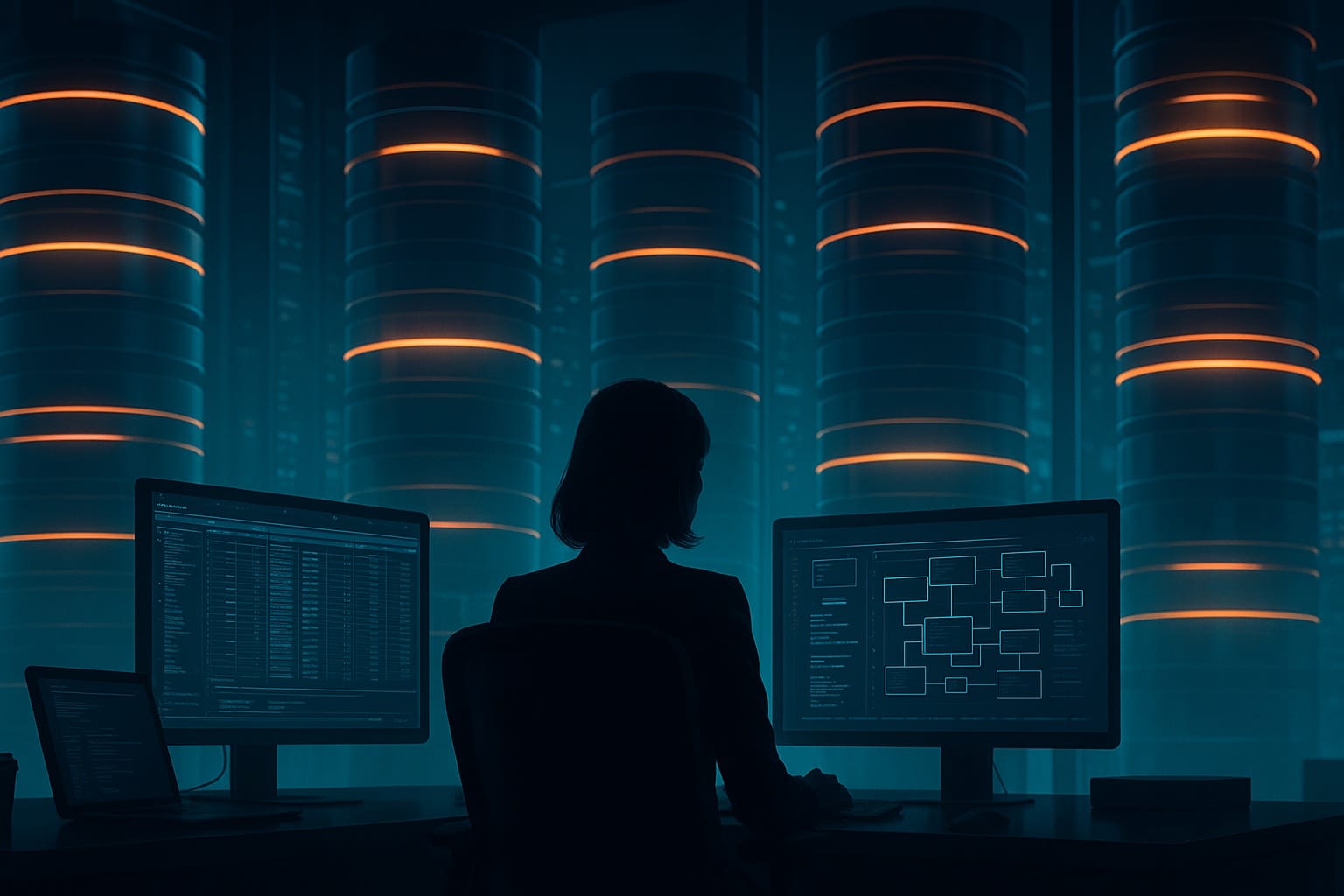Understanding Databases: A Guide for Legal Professionals

Databases are critical in today’s technology-driven world, and understanding them is essential for legal professionals involved in cases requiring a software expert witness or database expert witness. This article provides a clear overview of database technology, explaining types, functionalities, and their relevance in legal and business contexts.
What Are Databases?
A database is a structured system for storing, managing, and retrieving data. For non-technical legal professionals, think of it as an organized digital filing cabinet. Databases power everything from e-commerce platforms to complex financial systems, and disputes involving them often require a database expert witness to clarify technical details for litigation.
Types of Databases
Non-Relational Databases
Non-relational databases, also known as NoSQL databases, store data in flexible, non-tabular formats. Unlike traditional relational databases, they prioritize performance and adaptability for specific data types. These databases are ideal for modern applications where speed and scalability are critical.
Types of NoSQL Databases:
- Column-oriented: Optimized for large-scale data analytics.
- Document data store: Stores data as documents, like JSON or BSON, offering flexibility.
- Key-value store: Simple, fast storage for basic data retrieval.
- Graph databases: Designed for relationship-focused data, like social networks.
Use Cases for Non-Relational Databases:
- E-commerce inventory and catalog management
- Fraud detection and identity authentication
- Internet of Things (IoT) and sensor data
- Fintech and digital media management
Non-relational databases are often discussed in legal cases involving performance disputes, where a software expert witness can clarify their advantages over relational systems.
Relational Databases (RDB)
Relational databases, or SQL databases, organize data into structured tables with predefined relationships. Managed by a relational database management system (RDBMS) like MySQL, PostgreSQL, or Oracle, they are widely used for structured data needs. A database expert witness may explain their role in cases involving data integrity or transactional disputes.
How Relational Databases Work:
- Data is stored in tables with rows and columns.
- Each table has a primary key, a unique identifier for records.
- Foreign keys link tables, enabling complex queries using Structured Query Language (SQL).
Use Cases for Relational Databases:
- Transaction processing (e.g., banking systems)
- Data mining and complex reporting
- Enterprise applications requiring structured data
ACID vs. BASE: Key Design Differences
The distinction between ACID (Atomicity, Consistency, Isolation, Durability) and BASE (Basically Available, Soft state, Eventual consistency) is critical when evaluating databases. ACID ensures reliability for transactions, common in relational databases, while BASE prioritizes availability and scalability, typical in NoSQL systems. A software expert witness can analyze these properties in disputes over database performance or failures.
Top Databases in 2025
Based on recent trends, here are the most popular databases in 2025, according to DB-Engines:
1. Oracle
A leading RDBMS with a 30.2% market share, Oracle supports diverse data types, including relational, graph, and unstructured data.
Pros: Scalability, high availability, robust security.
Use Case: Large-scale enterprise systems.
2. MySQL
An open-source RDBMS used by platforms like Facebook and YouTube.
Pros: Cross-platform, secure, user-friendly.
Use Case: Social media and web applications.
3. Microsoft SQL Server
A versatile RDBMS with Transact-SQL (T-SQL) for advanced querying.
Pros: Scalability, free express edition, cloud compatibility.
Use Case: Business intelligence and analytics.
4. PostgreSQL
An advanced open-source object-relational database with extensive programmability.
Pros: Supports PL/PGSQL, Python, and JSON queries.
Use Case: Application development and data integrity.
5. MongoDB
A NoSQL document-oriented database with horizontal scalability.
Pros: Free, supports multiple platforms, JSON document retrieval.
Use Case: Rapid development and high-traffic applications.
Why Organizations Need Database Experts
As businesses navigate digital transformation, demand for database expertise is surging. A database expert witness can provide critical insights in legal disputes involving data breaches, system failures, or intellectual property issues. Similarly, a software expert witness can clarify complex technical issues, ensuring accurate representation in court.
At Sidespin Group, we specialize in database technology and offer litigation consulting, expert witness services, and technology strategy. Our expertise helps organizations optimize database choices for cost reduction and risk management. Learn more about our services in litigation consulting and expert witness consulting.
For further reading on database trends, check Gartner’s 2025 Database Report or TechRadar’s Database Insights.
Written by
Related Insights
Discuss your Case
- info@sidespingroup.com
- (800) 510-6844
- Monday – Friday
- 8am – 6pm PT
- 11am – 9pm ET
